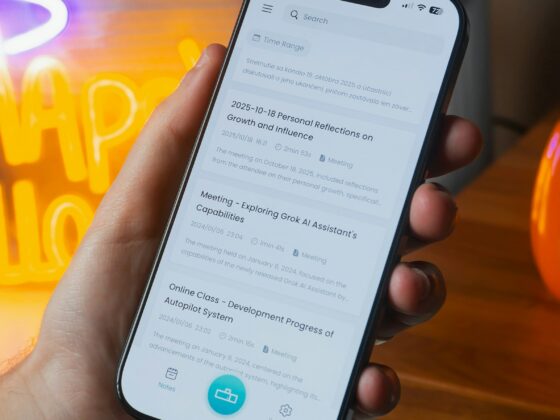When people talk about artificial intelligence in travel, they usually start from the traveler.
We have all seen the same demo: someone types a vague wish into a chat, the system finds flights, books hotels, suggests restaurants and creates an itinerary that looks almost human. It is fascinating, and a little intimidating.
On the
Phocuswright
stage in San Diego, I wanted to shift the camera. Instead of asking what AI will do for travelers, I asked a different question: what happens on the other side of that journey, inside destinations that are supposed to manage places, people and expectations that are all changing at once.
I have spent more than ten years working with destinations of every size, from small rural areas to big cities and countries. In all these contexts, I keep seeing the same tension: we live at two different speeds.
Travelers are experimenting with AI every day. Large language models, recommendation systems and dynamic pricing touch their decisions even when they do not notice. Destinations instead are still often working with tools that belong to another era, where data arrives late, is hard to interpret and is difficult to transform into action.
That gap was the starting point of my talk.
The limits of the old way of doing “smart”
When we started building data platforms for destinations, dashboards felt like a huge step forward.
We could aggregate signals from different sources, present KPIs in a clean way and give people the possibility to explore. For a while, that was enough. The main challenge was to convince organizations to use data at all.
In 2025 the problem is very different.
Destinations have many more responsibilities. They need to balance visitors and residents, think about climate and environment, support local businesses, manage seasonality, preserve identity and still remain competitive. At the same time, the amount of available data has exploded: reviews, prices, mobility, spending, events, air capacity, first-party data, open data and more.
Yet, in too many cases, all of this still ends up inside dashboards that assume a world where you have time, skills and patience to click, filter and export.
When I sit with destination managers, I do not see a lack of data, intelligence or vision. I see a lack of time. People are running from one meeting to the next, trying to keep up with stakeholders, politics and operations. In that context, a complex interface is not empowering. It is one more thing that competes for attention.
This is why, a few years ago, my team and I started to ask ourselves a simple question: what would it look like if you could talk to your destination data as easily as you talk to a colleague.
From dashboard to dialogue: asking real questions
The first step in our work was to move from clicking to asking. From a dashboard to a conversational interface.
Instead of forcing users to guess which chart hides the insight they need, we created a way to ask questions in natural language, in the same way you would do in a meeting.
- How did restaurant sentiment change this summer compared with last year?
- Which neighborhoods are attracting more first time visitors in the last 30 days?
- What happened to the average price when we hosted that big event in June?
Behind those questions there is a complex architecture. Data from flights, accommodation, spending, reviews, events and behavior are connected and aligned so that the system can understand what you are asking and respond with context, not just numbers.
For the person in front of the screen, the experience is very different. They do not need to remember where a metric sits in the dashboard or which filter combination gives the right view. They can follow their curiosity.
Some of my favorite moments in demos are when someone who never touches data raises their hand and starts asking questions. It is usually a person from communication, marketing or even politics who always felt that the dashboard belonged to “the data team”. When they realize that they can simply ask, something small but important changes.
That is what I call the move from dashboard to dialogue. Data stops being a static report and starts to behave like a conversation partner.
However, during our work with destinations, I realized that this still solves only half of the problem.
From dialogue to delegation: building an AI team for destinations
Even when conversations with data become easy, there is another bottleneck: time.
Destination managers do not just ask questions. They prepare reports, follow up on anomalies, send updates to stakeholders, produce presentations, monitor sustainability indicators, keep an eye on social media, and much more. Many of these tasks are repetitive, but they are not trivial. They require context and consistency.
This is where the second part of the journey comes in: moving from dialogue to delegation.
In a real destination management organization you never have just one role. You have people who focus on marketing, others on communication and PR, specialists who work on MICE, experts on sustainability, analysts and people who support local businesses.
We decided to mirror that structure on the AI side.
At the center, there is a Destination Management AI Agent that understands the overall context of the DMO and orchestrates the work. Surrounding it are specialist AI agents in:
- Marketing
- PR and Communication
- MICE expert
- Sustainability
- Data Analyst
- plus a Business-oriented AI agent focused on the needs of local companies;
When a destination requests something, the central agent decides which specialists to involve and in what order. Sometimes a simple analytical answer is enough. Sometimes the request triggers a chain of actions: generate a weekly report, update a presentation, send a summary to the team, monitor a set of indicators and raise an alert if something moves outside a defined range.
The idea is not to create a science-fiction scenario in which machines run destinations. The idea is to give human teams a digital counterpart that can do the invisible, boring foundations of good management at scale.
This is what I mean when I say that destinations can have their own AI-powered team. It is a set of coordinated agents that know the domain, speak the language and can act, not just reply.
Why I am obsessed with vertical, grounded AI
At this point, I often hear a reasonable objection.
If generic AI models are so powerful, why do we need a specific solution for destinations. Why not just plug a large language model into a few APIs and call it a day.
Part of the answer is data. At Data Appeal we have spent more than a decade collecting, cleaning and structuring tourism data for hundreds of destinations. We know how sentiment behaves across different markets, how seasonality changes by product and geography, how external events influence flows and prices. A generic model does not have this context.
The other part of the answer is responsibility.
Destinations are often public bodies, or closely linked to public policy. They cannot rely on opaque systems that hallucinate numbers or mix fresh data with outdated content scraped from who knows where. They need transparency on sources, clear boundaries, privacy by design and the possibility to inject their own strategy and governance.
Our approach to agentic AI is very simple: start from trusted, curated data, add a strong vertical context, connect it to multimodal models, then wrap everything in guardrails that respect the constraints of destination management. On top of that, let each destination plug in its own first-party data, strategic documents and specific KPIs.
This combination is what allows an AI team to move from nice demos to real work.
From “smart destination” to “agentic destination”
For years, our industry has talked about “smart destinations”.
Usually, this meant having a data platform, dashboards and the ability to monitor what is happening in almost real time. It was already a big step compared with pure intuition. It created a culture where decisions had to be backed by numbers.
What I presented at Phocuswright is the next layer on top of that.
Instead of a static platform that waits for someone to log in, you have an environment that can have conversations, remember context and take actions. Instead of a few people who know how to use the tools, you have an interface that invites everyone in the organization to participate. Instead of human teams spending their time on manual reporting, you have agents that handle that part and free people to work on strategy, relationships and creativity.
This is not theory. The first destinations that are using this approach are already seeing practical results: better balance between areas, more informed conversations with local stakeholders, faster reaction to changes in demand, smarter use of promotional budgets.
None of this happens overnight. It requires work, alignment and sometimes a cultural shift. The good news is that the technology is ready. The real question is how each destination chooses to use it.
Why this matters to me
I did not start my career thinking about AI. I started by trying to understand why some places manage to grow in a healthy way while others get lost between overtourism, underinvestment and political fights.
Over time, I realized that data is not just something you measure at the end of a season. It is a material you can design with. It can help you decide what kind of tourism you want, not only how many visitors you had.
Agentic AI is just the latest chapter in this story.
It is a way to take everything we have learned with dashboards and business intelligence, and translate it into tools that speak the language of people who are actually responsible for destinations.
On stage at Phocuswright I tried to share this idea: destinations do not need another shiny interface, they need partners, human and digital, that help them see clearly and act coherently.
If AI can help a small team work with the clarity and reach of a much larger one, if it can turn fragmented signals into a shared understanding, if it can create time and space for real conversations with residents and businesses, then it is worth the effort.
This is the direction we are working on with Data Appeal. Not to replace the work of destination managers, but to give them an AI team that is finally on their side, at their speed, and aligned with the future they want to build.









